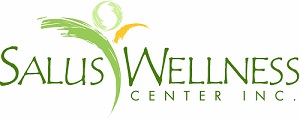 Acupuncture FAQ’s
Acupuncture FAQ’s
What is Acupuncture?
The practice of acupuncture is based on the principles of Traditional Chinese Medicine (TCM). It has a history of more than 3000 years of successfully diagnosing, treating, and preventing illness, while promoting health and well being. Acupuncture involves inserting very fine, pre-sterilized, disposable (one time use) surgical grade stainless steel needles into specific points or trigger points used to stimulate the body’s qi (pronounced “chee”), also known as vital energy or life force that flows through specific channels or pathways called meridians.
How does acupuncture work?
Health problems begin when the flow of qi is obstructed or when the qi is considered insufficient. Acupuncture works by regulating the flow of qi and removing obstructions, to restore health, balance and normal function. Acupuncture has shown to decrease inflammation, relieve pain, improve blood circulation, and regulate hormone secretion, as well as boost the immune system.
Is acupuncture safe for children?
Yes. In some instances children can respond more quickly than adults. If your child has an aversion to needles, then acupressure, herbal medicine or other modalities may be used.
Does it hurt?
Experience with acupuncture varies with each person. Many feel nothing at all while some may notice a small sensation as the needle is inserted. Once the needle is introduced, one may experience local feelings of tingling, distension, or heaviness. These are all considered positive sensations.
Are there any side effects?
Acupuncture is safe and effective when practiced by a qualified practitioner. Always be sure that your acupuncturist has received the proper level of training and is registered by the Alberta government or other recognized governing bodies. After treatment most people experience positive side effects reporting an increase in relaxation, improved sleep and a general sense of wellbeing right away, while others may take a little longer before establishing the same effects.
What does acupuncture treat?
The World Health Organization (WHO) and the National Institute of Health (NIH) has identified a number of conditions that acupuncture can benefit. Here are some of the conditions they have listed:
- Colds & Flu Sore Throat, Hay Fever
- Asthma, Bronchitis, Sinus Infection
- Addictions
- Digestive Disorders, Nausea, Vomiting
- Diarrhea, Constipation
- Hypoglycemia, Diabetes
- Ear Aches, Tinnitus
- Eczema, Acne
- Arthritis, Neuralgia, Sciatica, Bursitis, Tendonitis
- Sprains
- Neck and Back Pain
- Headaches, Migraines
- Bell’s Palsy, Trigeminal Neuralgia
- Stroke
- Infertility
- Menstrual Irregularities, PMS, Menopause
- Morning Sickness
- Anxiety, Depression
- Stress, Insomnia
How many treatments will I need?
The number of treatments varies with each person. Some of the factors include individual constitution, severity of a condition, whether it’s an acute or chronic condition as well as individual response to treatment.
How should I prepare?
- Arrive 15 minutes prior to your initial visit to fill out forms before your scheduled appointment.
- Wear loose and comfortable clothing. This allows for easy access to acupuncture points.
- Write down and bring in any questions you may have.
- Be sure to bring in the names and dosages of medications being taken, copies of any relevant test results and/or medical documents pertaining to your health concerns
- Be sure not to have an empty stomach nor eat large meals just before or just after your treatment.
- Refrain from working out or over exerting yourself, taking drugs or alcohol for at least six hours after your treatment.
- Drink plenty of water and take time to relax after each visit.
- Take note of any changes that may occur, such as relief from pain or changes of frequency and types of problems.
What to expect at your visit
Traditional Chinese Medicine takes a holistic, whole body approach to health. This means that you will be asked a wide range of questions pertaining to your entire self, not just the symptoms. This allows the doctor the ability to put all of the pieces of the puzzle together to get to the core of the problem and find a treatment plan that is best suited to you. This will include questions regarding your history, current complaints and overall health status.
A physical exam will then be performed, which will include taking your pulse and an examination of your tongue. This helps the doctor in determining health factors by looking at the color, texture and coatings. In addition, some body areas may be palpated.
Initial visits generally last from 60 – 90 minutes. Subsequent visits will average from 30 – 60 minutes. Please be sure to allow yourself the appropriate amount of time for each visit.
